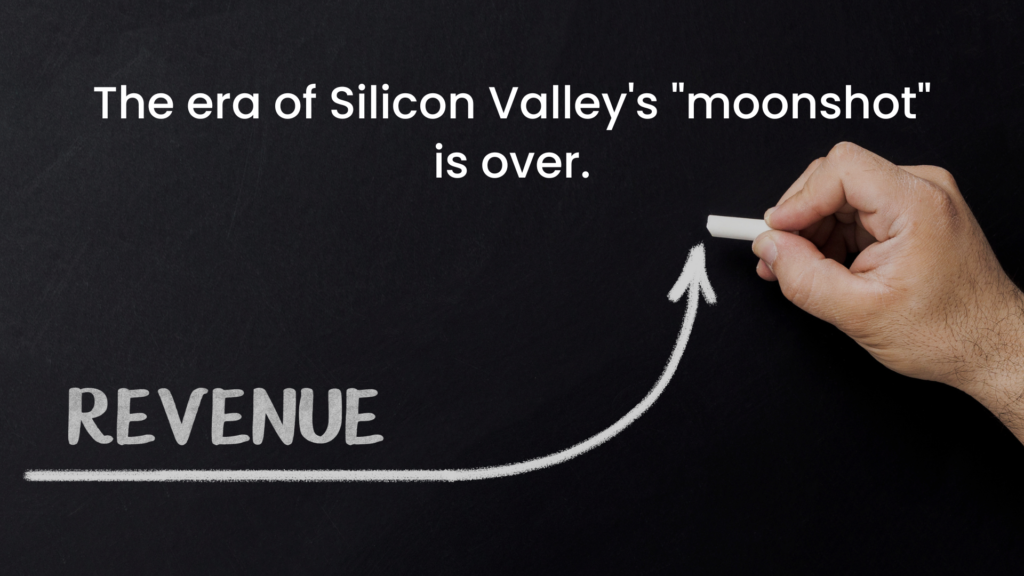IT TECH
UPDATES
The era of Silicon Valley's "moonshot" is over.
The concept of the “moonshot” has been associated with Silicon Valley for several years, with companies striving to achieve ambitious goals and solve complex problems with innovative technology. This approach has resulted in significant advancements in areas such as artificial intelligence, biotechnology, and renewable energy.

However, some experts argue that the era of Silicon Valley’s “moonshot” may be coming to an end, as the low-hanging fruit of technological innovation has already been picked, and the challenges remaining require more significant investments, long-term research, and collaborations across various fields.
Moreover, some critics have raised concerns about the impact of moonshot projects on society, including the concentration of wealth and power among a few companies, the potential for unintended consequences, and the neglect of pressing social and environmental issues.
Despite these concerns, many companies in Silicon Valley and beyond continue to pursue ambitious goals and innovative solutions. The focus may be shifting to more practical applications of technology, such as improving healthcare, education, and sustainability, rather than just pursuing attention-grabbing moonshot projects.
Cost-cutting and layoffs in Big Tech are just another nail in the coffin for the industry’s most ambitious and pricey undertakings.
Google’s founders divided the corporation into independent organisations and christened the collection Alphabet eight years ago. The aim was to divide the primary business — the company’s massive advertising machine that propelled it to the top of the world’s businesses — from the side ventures that required time to develop but may one day become Google’s next major moneymaker.
Technology is not your ally. We are.Yet the next great moneymaker is yet to appear. Advertising continues to generate the majority of revenue. Google has shut down the majority of its so-called “moonshot” projects, which range from internet-delivery balloons to glucose-measuring contact lenses.
Even its most sophisticated side initiatives, such as self-driving vehicle lab Waymo and health-care tech start-up Verily, are now constrained by the constraints of conventional businesses. Waymo fired off 8% of its workers on Wednesday, adding to a prior round of layoffs in January.
The Waymo layoffs are simply the most recent manifestation of a new reality that has settled over Big Tech: the period of moonshots has passed.
When the decade-long bull market stalled and tech stock prices declined throughout last year, Wall Street put pressure on companies to cut expenses, and in recent months, Silicon Valley has seen a rush of layoffs and cost-cutting. The big-idea side projects that were expected to become future revenue generators have taken a particularly harsh blow, with some being entirely demolished and others experiencing significant cutbacks.
Rising borrowing rates make it more difficult to maintain spending on money-losing initiatives as Big Tech is “retrenching” in order to safeguard its core business. Google and Meta did not respond immediately.
Giving up the moonshot ambition is another step in the corporations’ maturation. Google, Facebook, and Amazon all rose quickly from start-ups to tech behemoths in the first two decades of the millennium by disturbing the equilibrium established by corporations that came before them.
The culture of “move fast and break things” helped them become goliaths in their own right, as did billions in venture capital financing from Silicon Valley investors. But, for entrepreneurs who started their firms in dorm rooms and garages, the prospect of the next agile start-up disrupting them remained ever-present.
In conclusion, while the era of Silicon Valley’s moonshot may be evolving, the spirit of innovation and ambitious goals will likely continue to drive technological progress and shape the future.